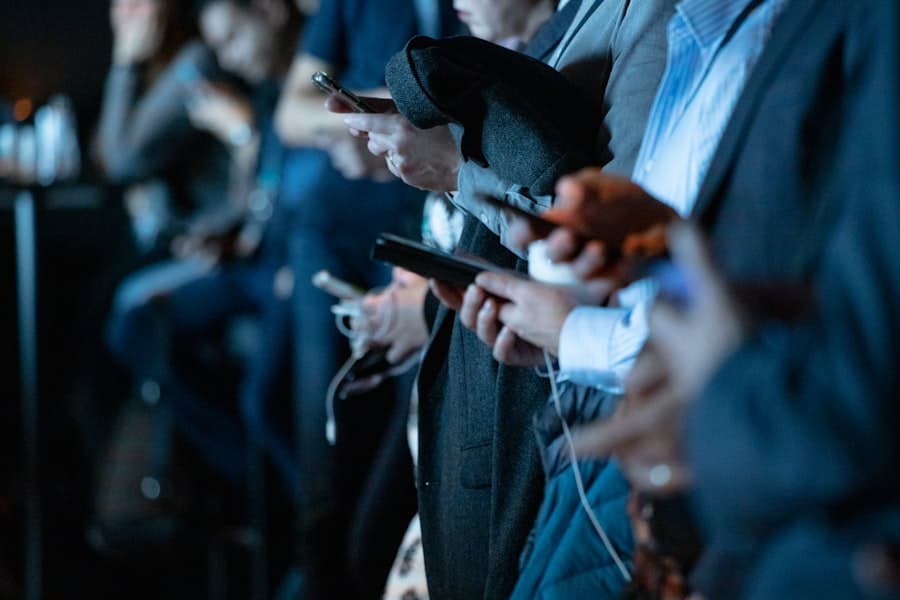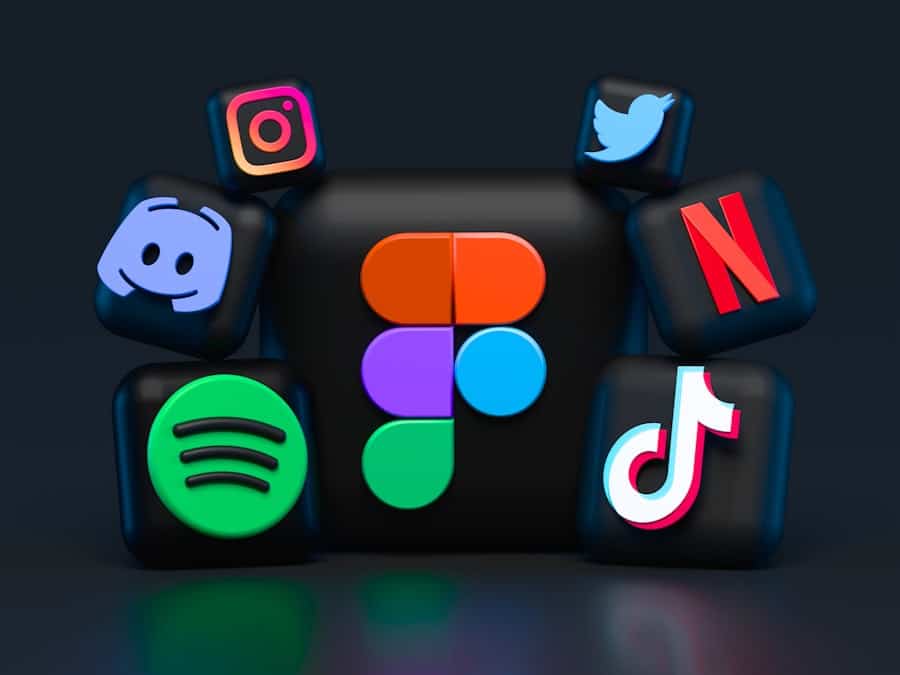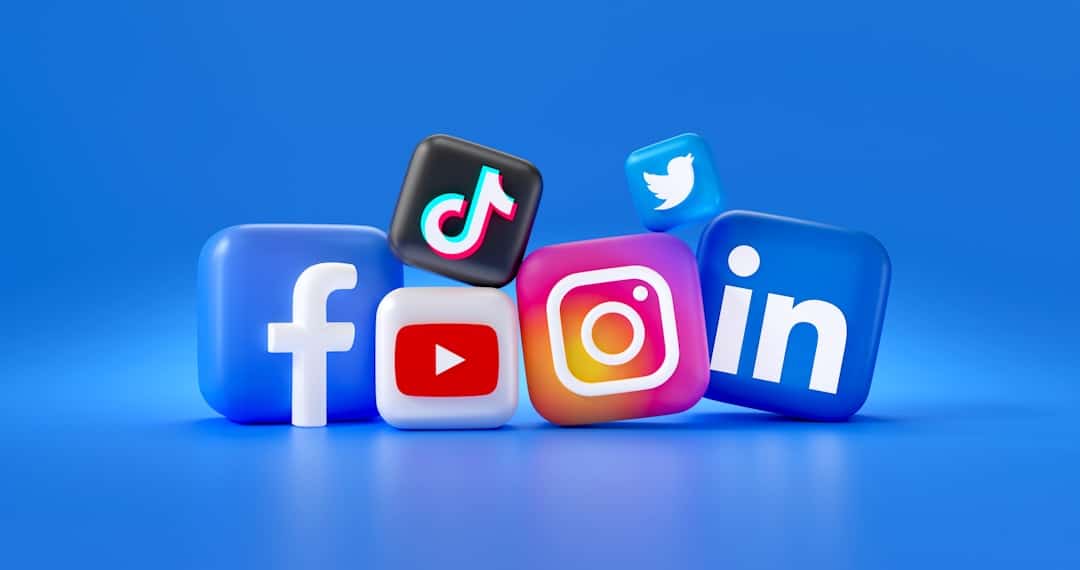The intersection of social media and gaming culture has transformed the landscape of how players interact, share experiences, and build communities. In the past, gaming was often a solitary pursuit, confined to the living room or a friend’s house. However, with the advent of social media platforms, gamers now have the ability to connect with others across the globe, fostering a sense of community that transcends geographical boundaries.
Social media has become an integral part of the gaming experience, serving as a conduit for communication and collaboration among players. Platforms like Twitter, Facebook, Instagram, and TikTok have enabled gamers to share their achievements, seek advice, and engage in discussions about their favorite titles.
This connectivity has led to the emergence of vibrant online communities where players can find like-minded individuals who share their passion for gaming. As a result, social media has not only enhanced the gaming experience but has also played a pivotal role in shaping the identity of modern gamers.
Key Takeaways
- Social media has become an integral part of gaming culture, shaping the way gamers connect, share, and consume content.
- Gaming communities are heavily influenced by social media, with platforms like Twitch and YouTube providing a space for gamers to engage and interact.
- Social media serves as a platform for gamers to connect, share gameplay experiences, and build communities around their favorite games.
- The impact of social media on gaming marketing and promotion is significant, with influencers and streamers playing a key role in shaping consumer preferences.
- Social media plays a crucial role in shaping gaming trends and preferences, influencing the way games are developed, marketed, and consumed.
The Influence of Social Media on Gaming Communities
The influence of social media on gaming communities is profound and multifaceted. One of the most significant impacts is the democratization of information and resources. Gamers can now access a wealth of knowledge through forums, social media groups, and content-sharing platforms.
This accessibility allows players to learn from one another, share strategies, and discuss game mechanics in real-time. For instance, platforms like Reddit host numerous subreddits dedicated to specific games or genres, where players can post guides, ask questions, and share their experiences. This exchange of information fosters a collaborative environment that enhances gameplay and encourages skill development.
Moreover, social media has facilitated the formation of diverse gaming communities that cater to various interests and demographics. From casual gamers to competitive esports enthusiasts, there are online spaces for everyone. These communities often provide a sense of belonging and support, particularly for marginalized groups within the gaming world.
For example, initiatives like #BlackGamers and #WomenInGaming have emerged on platforms like Twitter to promote inclusivity and representation in gaming. By amplifying voices that have historically been underrepresented, social media has played a crucial role in reshaping the narrative around who can be a gamer.
Social Media as a Platform for Gamers to Connect and Share

Social media serves as a powerful platform for gamers to connect and share their experiences in ways that were previously unimaginable. The ability to post gameplay clips, screenshots, and live streams allows players to showcase their skills and creativity. Platforms like Twitch and YouTube have become hubs for gamers to broadcast their gameplay live or upload edited videos for others to enjoy.
This not only provides entertainment but also creates opportunities for interaction between content creators and their audiences through comments, chats, and social media engagement. Additionally, social media enables gamers to form friendships that extend beyond the virtual world. Many players use platforms like Discord to create servers where they can chat with friends while playing games together.
These servers often serve as community hubs where members can organize events, share memes, or discuss upcoming game releases. The ability to connect with others who share similar interests fosters camaraderie and enhances the overall gaming experience. As a result, social media has become an essential tool for building relationships within the gaming community.
The Impact of Social Media on Gaming Marketing and Promotion
The impact of social media on gaming marketing and promotion cannot be overstated. Game developers and publishers have recognized the potential of these platforms to reach vast audiences quickly and effectively. Traditional marketing strategies have been supplemented—or in some cases replaced—by social media campaigns that leverage influencers, user-generated content, and viral trends.
For instance, when a new game is announced, developers often utilize platforms like Twitter and Instagram to generate buzz through teaser trailers, behind-the-scenes content, and interactive posts that encourage fan engagement. Moreover, social media allows for real-time feedback from players during beta testing or after a game’s release. Developers can gauge player reactions through comments and shares, enabling them to make adjustments or improvements based on community input.
This level of interaction was not possible in earlier marketing models where feedback was often delayed or limited to formal reviews. The ability to engage directly with consumers has led to more responsive marketing strategies that prioritize player satisfaction and community involvement.
Social Media’s Role in Shaping Gaming Trends and Preferences
Social media plays a crucial role in shaping gaming trends and preferences by influencing what games become popular and how they are perceived by the public. Viral challenges, memes, and trends often originate on platforms like TikTok or Twitter, leading to increased interest in specific games or genres. For example, the rise of battle royale games like Fortnite can be attributed in part to their visibility on social media platforms where players shared gameplay clips and participated in challenges that showcased their skills.
Additionally, social media allows for the rapid dissemination of information regarding game updates, expansions, or new releases. Gamers are often among the first to learn about upcoming titles through announcements made on social media channels. This immediacy creates a sense of excitement and anticipation within the community as players discuss potential features or speculate about gameplay mechanics.
As trends emerge and evolve within these online spaces, developers are increasingly attuned to player preferences, leading to more tailored gaming experiences that resonate with audiences.
The Rise of Influencers and Streamers in Gaming on Social Media

The rise of influencers and streamers has significantly altered the dynamics of gaming culture on social media. Content creators who specialize in gaming have amassed large followings by sharing their gameplay experiences, providing commentary, and engaging with their audiences in real-time. Platforms like Twitch have given rise to a new breed of entertainers who not only play games but also cultivate communities around their content.
These influencers often serve as tastemakers within the gaming industry, shaping public perception of games through their endorsements or critiques. Influencers have also become key partners for game developers looking to promote their titles. Collaborations between influencers and brands have led to innovative marketing campaigns that leverage the authenticity of these creators’ voices.
For instance, when a popular streamer plays a newly released game live on Twitch, it can lead to a surge in sales as viewers are drawn to both the gameplay experience and the streamer’s personality. This symbiotic relationship between influencers and game developers highlights how social media has redefined traditional marketing approaches within the gaming industry.
The Dark Side of Social Media in Gaming Culture: Toxicity and Harassment
While social media has fostered connection and community within gaming culture, it has also given rise to significant challenges related to toxicity and harassment. Online anonymity can embolden individuals to engage in negative behaviors such as trolling, bullying, or hate speech.
The prevalence of toxicity can create hostile environments that discourage participation from certain groups. Many gamers have shared their experiences of being targeted by toxic behavior on platforms like Twitter or Twitch, leading to calls for greater accountability from both users and platform administrators. Efforts to combat toxicity include initiatives aimed at promoting positive behavior within communities as well as stricter enforcement of anti-harassment policies by social media platforms themselves.
However, addressing these issues remains an ongoing challenge as communities strive to create inclusive spaces for all gamers.
The Future of Social Media in Gaming: Opportunities and Challenges
Looking ahead, the future of social media in gaming presents both opportunities and challenges that will shape the evolution of this dynamic landscape. As technology continues to advance, new platforms may emerge that further enhance connectivity among gamers. Innovations such as virtual reality (VR) or augmented reality (AR) could lead to entirely new forms of social interaction within gaming environments.
These technologies may allow players to engage with one another in immersive ways that blur the lines between virtual and real-world interactions. However, challenges such as toxicity and misinformation will require ongoing attention from both communities and platform developers. As gaming culture continues to evolve alongside social media trends, it will be essential for stakeholders to prioritize inclusivity while fostering positive interactions among users.
The balance between freedom of expression and maintaining respectful discourse will be critical as gamers navigate this ever-changing digital landscape. In conclusion, social media’s impact on gaming culture is profound and multifaceted. From fostering connections among players to shaping marketing strategies and influencing trends, its role is integral to the modern gaming experience.
As we look toward the future, it is clear that both opportunities for growth and challenges related to toxicity will continue to define this vibrant intersection of technology and community.
In the article “Exploring the Role of Social Media in Gaming Culture,” the impact of social media platforms on the gaming community is thoroughly examined, highlighting how these platforms have become integral to the gaming experience. A related article that delves into the technological advancements influencing modern digital interactions is Exploring the Features of the Samsung Galaxy Book Odyssey. This article provides insights into the latest features of the Samsung Galaxy Book Odyssey, showcasing how cutting-edge technology can enhance both gaming and social media experiences, thereby enriching the overall digital culture.
FAQs
What is the role of social media in gaming culture?
Social media plays a significant role in gaming culture by providing a platform for gamers to connect, share experiences, and engage with gaming content. It also serves as a space for gaming communities to form, discuss game-related topics, and stay updated on the latest gaming news and trends.
How does social media impact the gaming industry?
Social media has a profound impact on the gaming industry by influencing game marketing, player engagement, and community building. It allows game developers and publishers to reach a wider audience, generate hype for new releases, and receive direct feedback from players.
What are the benefits of social media for gamers?
Social media offers gamers the opportunity to connect with like-minded individuals, discover new games, share gameplay experiences, and participate in gaming events and competitions. It also provides a platform for gamers to showcase their skills and creativity through content creation and streaming.
What are some popular social media platforms for gaming culture?
Popular social media platforms for gaming culture include Twitch, YouTube Gaming, Twitter, Discord, and Reddit. These platforms are widely used by gamers to share content, connect with other players, and stay informed about the gaming community.
How does social media influence gaming trends and discussions?
Social media has the power to influence gaming trends and discussions by amplifying certain games, gaming personalities, and industry news. It also facilitates the spread of gaming-related memes, challenges, and viral content that can shape the overall gaming culture.

